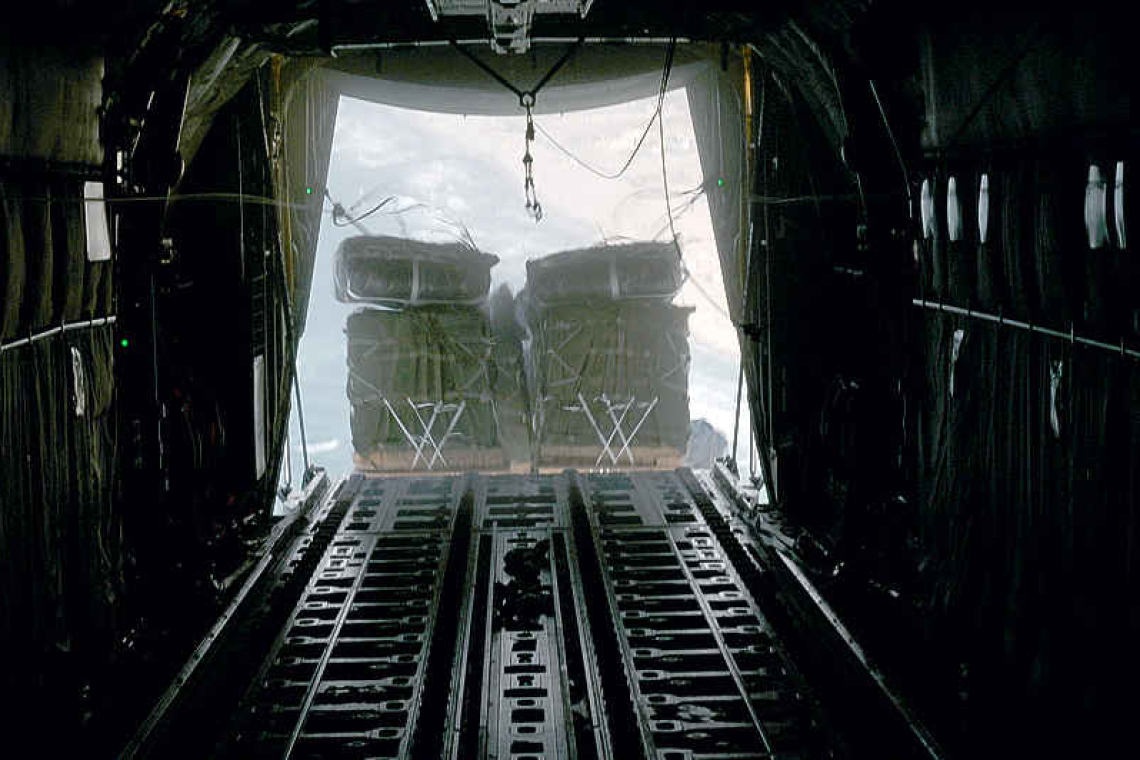WASHINGTON--The U.S. military on Saturday carried out its first airdrop of aid into Gaza, after the deaths of Palestinians queuing for food underlined the growing humanitarian catastrophe in the crowded coastal enclave after months of Israeli military operations. Other countries including Jordan and France have already conducted airdrops of aid into Gaza, where the U.N. Office for the Coordination of Humanitarian Affairs says a quarter of the population - 576,000 people - are one step from famine. The U.S. airdrop used C-130 transport aircraft which dropped more than 38,000 meals along Gaza's Mediterranean coastline, the U.S. military said in a statement. Jordanian forces also took part in the operation. "We are conducting planning for potential follow-on airborne aid delivery missions," the statement said. A senior administration official, speaking on condition of anonymity, said the drop had not been coordinated with any groups on the ground in Gaza but U.S. officials had seen civilians approaching the aid and distributing it among themselves. "We've been monitoring the location where the assistance was dropped," the official said. A second U.S. official told Reuters the airdrops took place over southwestern Gaza and the town of Mawasi. The White House said on Friday the airdrops will be a sustained effort, and that Israel supported the measure. Under pressure at home and abroad, the Biden administration is also considering shipping aid by sea from Cyprus, some 210 nautical miles off Gaza's coast, according to a U.S. official. The U.S. for months has been calling for Israel to allow more aid into Gaza, something Israel has resisted. Some experts said being forced to resort to costly, inefficient airdrops was the latest demonstration of Washington's limited influence over Israel as it pursues its war with Hamas. Washington is arming Israel and considers it one of its closest allies in the region. Critics of airdrops say they have only a limited impact on the suffering, and that it is nearly impossible to ensure supplies do not end up in the hands of militants. Another U.S. official said distributing aid has been a significant challenge in Gaza because lawlessness has escalated, with criminal gangs taking aid and reselling it. "There's a way that you resolve this problem. And the way is you flood the market. You bring in assistance from every point you can - air, sea, land," the official told reporters. "The president's intent is to see that flooding of the zone."







